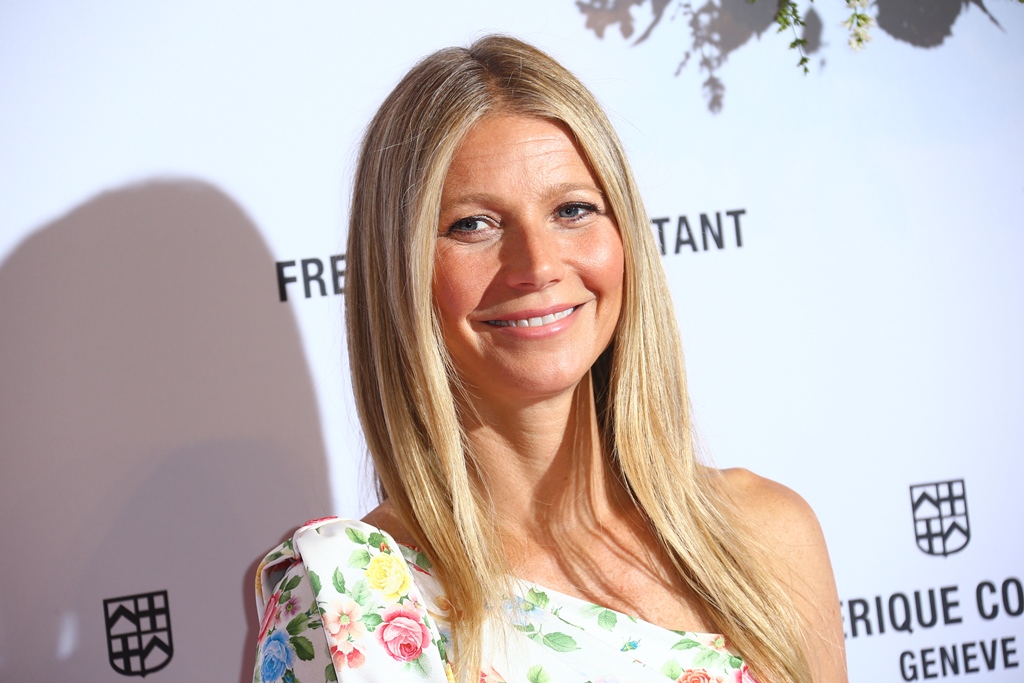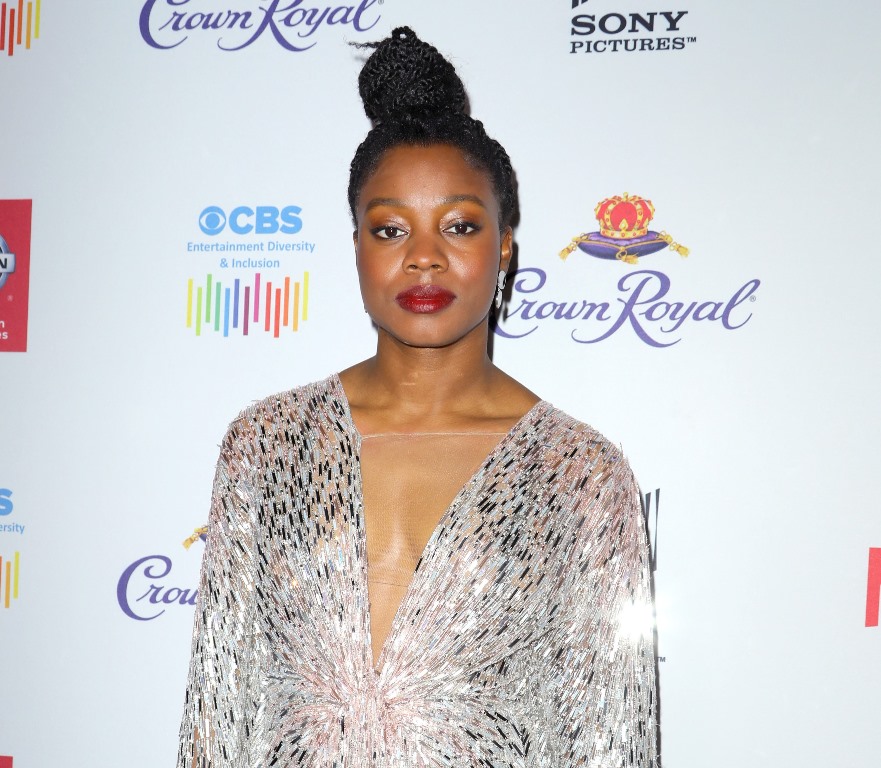“Just Get Rid of It”: Hollywood’s Accent Problem



“I hate mushrooms,” says Alessandro Miro.
“Put that in the article,” jokes Andrea Stefancikova.
The three of us are all sitting outside in the patio of an Italian restaurant on Vancouver’s Commercial Drive. It’s about seven o’clock on a warm summer day last June, just early enough to watch the fading sun disappear behind the buildings. Andrea shifts her chair over a little to get the sunlight out of her face.
“Can I do the marinara?” Al asks our server. “I used to eat marinara when I was a kid. My grandma owned a pizzeria. I would always eat marinara and it was always so good,” he explains.
“You eat a lot, right?” Andrea asks Al as soon as we’ve all finished ordering. It certainly doesn’t look like he does. Perhaps it’s because the past few weeks have been quite emotionally exhaustive.
“Before the last union meeting, I was in my car stressed out,” says Andrea. She’s referring to the Union of British Columbia Performers (UBCP), an autonomous part of the actor’s union, ACTRA. Al and Andrea are actors. Al, originally from Italy, and Andrea, originally from Slovakia, both came to Canada when they were teenagers along with their families, and it was always clear that acting was their future. Andrea even comes from a family of filmmakers and directors.
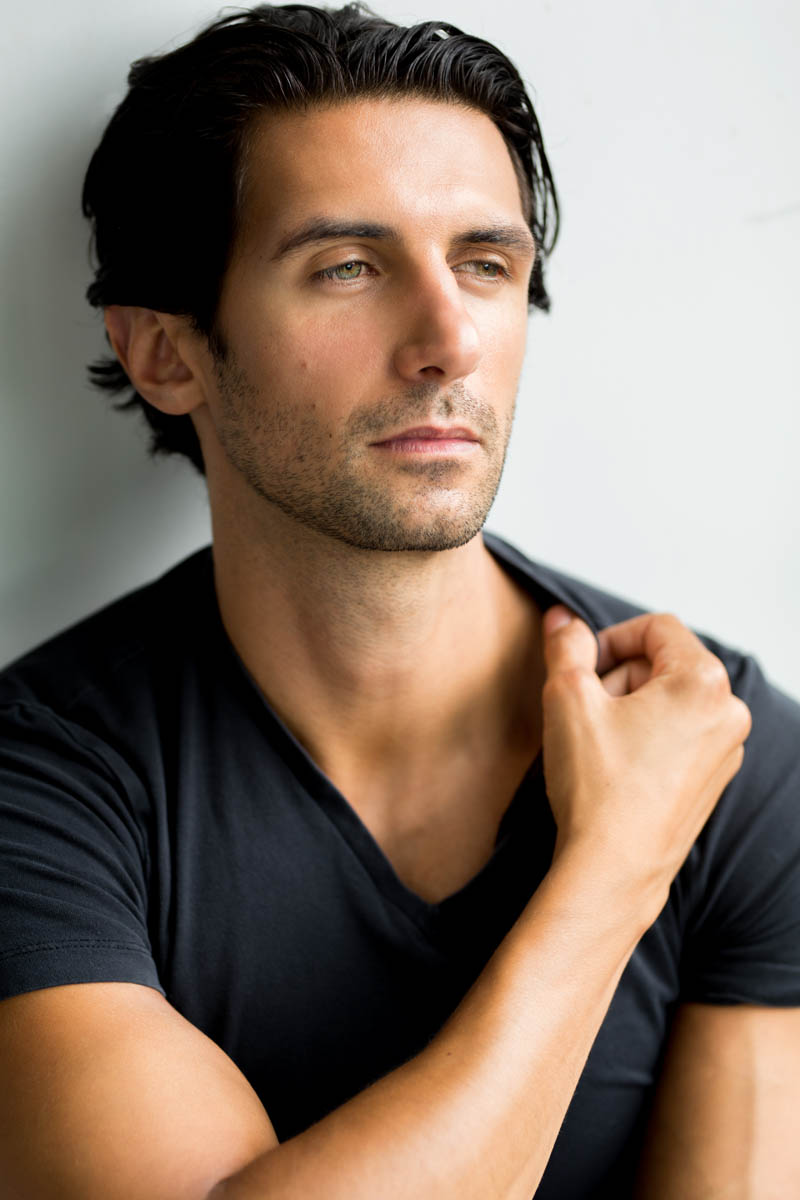
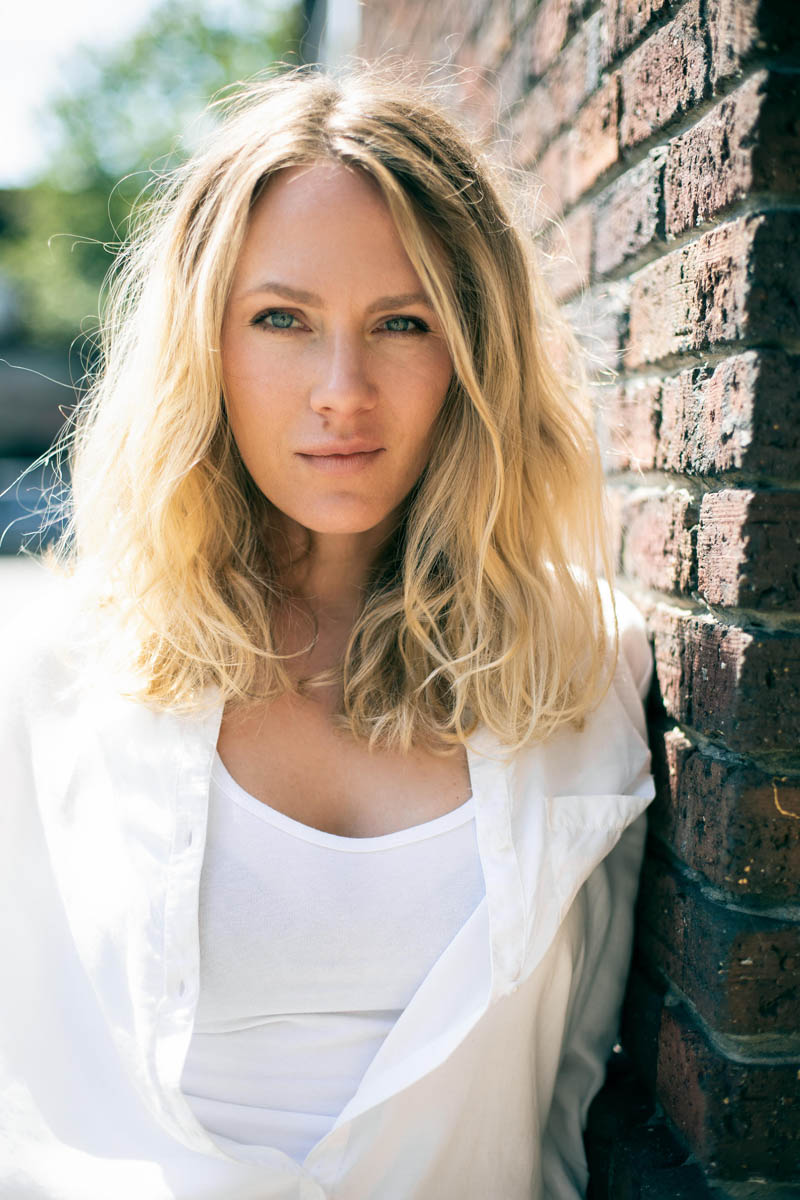
Al and Andrea turned heads last year after they first spoke out about a common, but little known issue in the industry: accent discrimination. It’s a sticky one, a topic that can silence an entire room
“I felt the energy change, and I remember I was really nervous,” says Al. “This has never been brought up before.”
Both Al and Andrea have lived here for decades, yet they still have accents like many immigrants do. As actors in the industry however, they say that this has put them at a significant disadvantage because productions either don’t hire people with accents or expect them to remove any trace of it to sound neutral.
“If you’re an immigrant actor, you get the notes like: ‘You have to sound Standard American.’”
Standard American English
How do you sound Standard American? Or better question, what even qualifies as Standard American? Standard American English, also sometimes called General American or Broadcast English, is a term that refers to the accent that is perceived to be the most neutral American accent. If you visit different regions of the US like New York, Boston, Texas, or California, you’ll hear distinct differences between the way people speak.
Even in Canada, there are differences between British Columbians, Ontarians, and Maritimers.
The Standard American accent was an attempt to create a clear, understandable spoken English accent that wouldn’t betray what part of the country you were from. So… where is that? Back in the 1920s and 30s when this concept was introduced, first by George Philip Krapp in 1925, and followed up by John Kenyon in 1930, Standard American was associated with the Midwest. Kenyon’s book, American Pronunciation, and theory were greatly influenced by his own Northeastern Ohio accent and gained popularity beyond the linguistic community. Soon, his General American became the standard for broadcasters and news anchors everywhere and gave birth to the belief that his Midwest-influenced Standard American should be the benchmark for clear, proper American pronunciation, a belief that remains largely intact today.
There are a few issues with this theory though. Firstly, since the inception of Standard American, the way Americans sound is now different. In the 1960s, the vowel sounds of parts of the country began to shift in a linguistic event known as the Northern Cities Vowel Shift. It’s how the modern, stereotyped accent of the Midwest (think Fargo) came to be. Additionally, Kenyon’s Standard was based on how he spoke, which according to Atlas Obscura, was “how upper-middle-class non-recent-immigrant white people from Northeastern Ohio spoke.” (Source)
That’s largely the problem with Standard American. It represents a small, well-off, white segment of the population and disregards other ways that people in America speak English. The Atlas Obscura article also points out that our ability to perceive different accents is largely influenced by our perceptions of the people who speak them and that sounding “accentless” is conditional upon how we ourselves speak.
The situation is that now, actors are expected to sound Standard American, which is an accent that has no geographic affinity, excludes large swathes of the population, and was created almost a century ago! While that seems perplexing by itself, it also has very real implications for Hollywood and actors with accents.
Acting with an Accent
“I remember being in high school and getting cast in plays because of my personality,” says Al. “Then I auditioned for a theatre school in the city. I finished my monologues and the person says, ‘Yeah, that was good, but you have an accent. There will be no roles for you, so I don’t think we’ll be able to take you.’ And that was the first time I had ever heard that.”
The truth is actors with accents (who are usually immigrants) are often denied roles because of their accent and either have to neutralize it or find roles that are “suited for their accent.” When I ask Andrea what roles those would be for her, her answer is simple.
“Prostitutes.” Unfortunately, that’s the only kind of roles she can go for too. “When agents sign on, even if they believe in you, they say, ‘We’re just going to work the niche.’ You’re not going to get offered any normal parts that are ‘American’ which is most. You’re going to go out for the parts that require any kind of European accent.”
There are two major problems with this model. The first is, of course, the ridiculousness of these stereotypes. Andrea says that when she first came here, kids in school would ask her if she made money doing porn despite being 17 at the time.
The second is that in an industry with limited options, Andrea must take the work that she can get. When her family would object, she’d say, “I can’t say no. If I say no, they’ll never cast me for anything else again. If I do this, then I can do something else later.” It’s a Catch-22. While the work is limited and stereotyped, she needs it to build up her body of work.
“You get close, but then they say they have to go with the person who has the bigger resumé, who’s been able to play everything else,” Al adds.
Al’s referring to what casting directors call “Q.” I learned this from producer, writer, actor, and showrunner Jonathan Walker who works on the show Van Helsing and is often involved with casting decisions. “Q” is an elusive term that refers to an actor’s body of work, their recognizability to the public, and is usually a key factor when casting lead roles. “Q” can also determine if an actor can actually carry a lead. In an ideal world, casting decisions would go to the most talented actor. However, other considerations need to be made, including marketability, public consumption, and talent, all of which can affect how well a movie or TV show does.
Since fewer roles go to accented actors, they are already behind by the time they start their career. Plus, constantly being told that your accent is wrong and needs to be changed can have a profound impact on a young actor’s outlook and self-esteem. When I asked Al and Andrea about what got them into acting, they both had a similar story, and it was always about a love of performing and connecting with their audience.
“I just liked feeling and emoting with the audience. And affecting them. When I saw my first movies, when I was in the theatre I thought, ‘oh my God, I want to do that. I want to do that!’” recalls Andrea.
What strikes me as I talk to them is the contrast between this passion and the cold truth that this barrier is something that they don’t have much control over. Something that’s innately part of them.
Al tells me about a moment from one of his classes where a student said, “I’m just so upset that I was born in the wrong country.” Throughout their careers, both Al and Andrea have been suggested a plethora of “solutions” to this problem, all focused on “fixing” their accents. They’ve even been told to stop speaking to their families in their native tongue and to change their last names.
“A lot of us feel ashamed and feel like it’s something wrong with us. That we have to change. And that’s why we don’t speak up. Every time you bring it up, people say, ‘you just have to get rid of your accent.’”
Al has spent $13,000 on accent lessons over the past 15 years. Andrea has paid for countless classes with coaches and speech therapists, drilling and working on her accent often to the point of tears. But they still get the same feedback they did before they started. That’s not to say that accent coaching isn’t helpful, and Al and Andrea recognize its value. But they're frustrated that even after doing what everyone told them to, they still lands back at square one.
“It’s no longer about whether I can be understood. Now it’s to make sure that people can’t tell that I’m an immigrant," says Al.
There’s a palpable absurdity in these kinds of criticisms as well. As we already know, Standard American doesn’t represent such a linguistically diverse country. But the fact that characters in various North American cities don’t have accents is yet another false claim.
“Isn’t it funny that being an immigrant [among so many immigrants] is considered niche?” says Al. He has even started a web series based on the humour of this very idea.
If you walk around any metropolitan city in Canada or the US, you’ll usually hear at least one if not more people with a foreign accent. Almost all of us know someone with a foreign accent. For me, that’s a large portion of my family. If we truly intend to embrace diversity, then we can’t just look diverse; we also need to sound diverse.
Different Perspectives
No matter where you come from, immigrating to a new country and learning to speak an entirely different language is an enormous challenge, especially at a young age. However, Al and Andrea emigrated from European countries. While those heritages come with their own share of insulting stereotypes, they also carry a certain amount of privilege in North America, especially compared to someone emigrating from Asia, Africa, or the Middle East. In fact, Andrea has sometimes been told that she couldn’t be cast in smaller roles because she had a “leading look” and distracted viewers from the main characters. That’s not to say Andrea should feel ashamed, but it does speak to what the industry and audiences expect lead characters to look like.
Panthea Vatandoost is an Iranian-born actor who is the Managing Artistic Director for Medusa Theatre in Vancouver and has acted in shows like Charmed and Chilling Adventures of Sabrina. She first moved to Vancouver from Tehran when she was 15. Here, she discovered a multitude of new experiences, one of which was the ability to explore Art and Theatre in school. Back in Iran, you had to attend a separate school to take art classes. It was here that she discovered that her longtime passion of writing and producing plays could be a viable career.

Viv Leacock is a Canadian actor who has worked on shows like Supernatural and Psych, and more recently has appeared on the Hailey Dean Mysteries and Dirk Gently’s Holistic Detective Agency. He was born in Montreal but lived in New York for most of his young life. Although he grew up in North America, Viv was acutely aware of accent discrimination because his parents were immigrants from Trinidad. As a Black youth growing up in the late 80s and early 90s, he was also exposed to the discrimination felt by many for the way they looked and sounded.
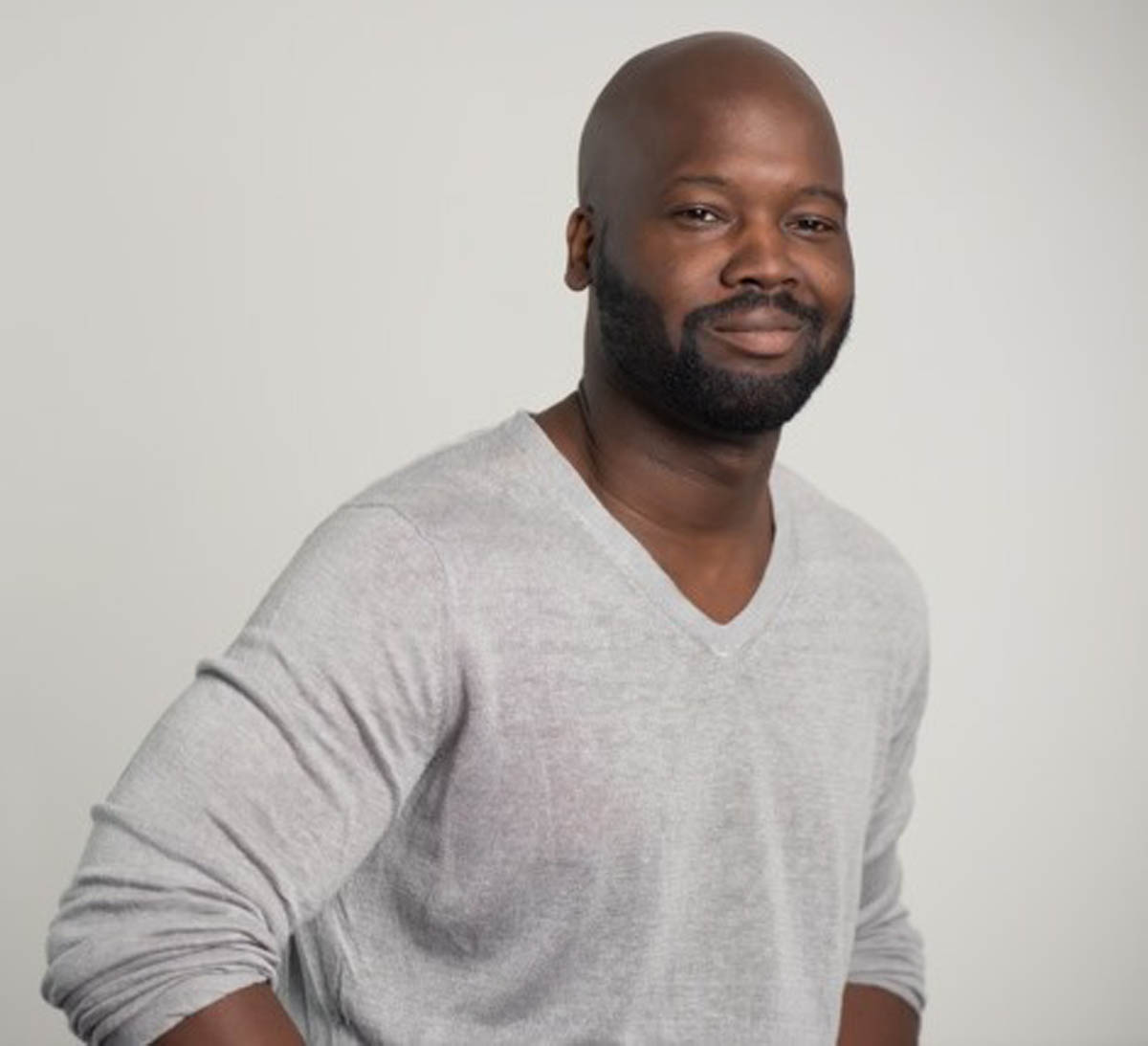
Gus Khosrowkhani is an actor originally from Shiraz, Iran. Gus only started acting after a full career in IT Consulting but has since appeared on Arrow and the short film, Daedalus. For Gus, acting was always his passion, but he was deterred when he was younger and eventually had to face the realities of providing for his family. Later in life, Gus decided to pursue this passion and has been acting in Vancouver for the past five years.
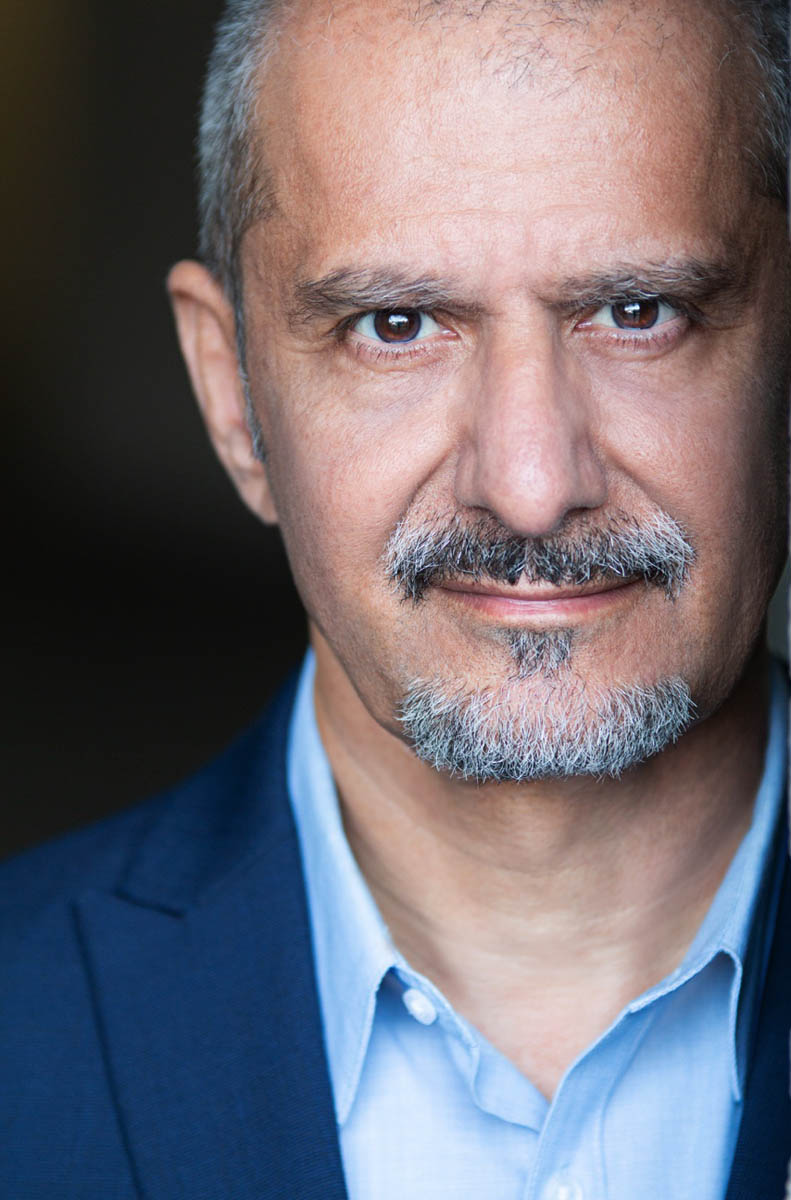
Harman Aulakh is relatively new actor to the industry who took acting lessons from Al when she was starting out. She moved to Canada three years ago to pursue her dream of acting after working in the social sector back in India for several years. Harman has appeared in the short film, Kurdish Tattoo, and her recent experience in the film industry provided a newer perspective on the issue of accent discrimination.

Despite their varied backgrounds, Panthea, Viv, Gus, and Harman shared some common experiences with each other, and even with Al and Andrea. For example, they all recalled incidents where they had been pigeon-holed to very specific, limited, and often stereotyped roles in their careers.
Panthea tells me about one such incident that occurred at the wrap party for a play that she had produced, financed, and starred in. “Someone asked me what was next,” she recalls. When she explained that she was having trouble landing theatre auditions, likely because of her film-focused education, a colleague replied, “What are you auditioning for? Because I can’t imagine there being a lot of roles for Middle Eastern girls.”
“Apparently that’s all I’m set up for,” she tells me. “Just a skin colour and an origin of birth.”
Viv said that some of the roles he auditioned for offended him. “I’m just like, ugh, I can’t even deal with this. It’s mugger number one. And pimp number two. And mugger’s son.” The writing too was terrible, written mostly by white men who had no handle on how Black characters spoke. In fact, going for stereotypical roles bothered Viv so much that he quit the industry for seven years. “I just didn’t want to take part in representing Black people that way.”
Viv was never directly told to change the way he spoke, but he always innately understood what was expected. He recalls a Dave Chapelle bit about how Black people have two accents. “They speak street and job interview,” Chapelle says comedically. But this was something Viv experienced as a teenager. “I called these wanted ads and very, very much pulled back on any ebonics, any urbanisms. Anything. Very neutral,” Viv explains. “I would say, ‘So do you have an opening?’ ‘Yes, we do. We have three openings.” But once Viv went down to drop off his resume, they would look at him and tell him that nothing was available.
Like Al and Andrea, most of the actors I spoke to had either been asked to reduce their accents or had taken steps to do so. Panthea was even asked by a friend in the industry when she was going to “do something about her French accent.” “I don’t speak French,” she says matter-of-factly. “It was a very, very crass comment.”
The biggest difference between these actors and Al and Andrea is the fact that as people of colour, they’re immediately othered by virtue of being visibly different. “There’s no second-guessing what I am,” says Viv. “From a block away, you know what I am.”
“If you’re visibly a person that somebody can be discriminatory to, it’s different than waiting until you open your mouth. Right? Because both Andrea and Al can go to Georgia, go places, and nobody will say anything to them, nobody will look at them the wrong way,” explains Gus.
Therein lies the extra layer of being an actor who is both visibly and audibly different. For them, accent discrimination is part and parcel with all the other discrimination they face daily. To Gus, that presented itself as a disconnect between the movement’s motives and its participants.
“I have told the Union,” he says. “I said, ‘you guys have no f-cking clue what discrimination is. You’re just a bunch of white people sitting here complaining about accents. Try to be like one of us.”
To Panthea, it meant the opposite. “Just because they don’t experience the same discrimination I do doesn’t mean their challenges aren’t valid.” In fact, she sees that as one of the benefits of what Al and Andrea are doing. “We’re going to talk about the discrimination against a person’s colour, or an immigrant, or a refugee, but not about discrimination for the way they sound? Because it is hand in hand!”
To be clear, all the actors that I spoke to wholeheartedly support Al and Andrea’s work, including Gus. But the biggest takeaway for me, and one that seems obvious in hindsight, is that divorcing accent discrimination from the other discrimination that immigrants face is impossible. “I bring everything with me,” says Harman. “My appearance. My accent. Whatever my life has been and where I come from. So, you have to take all of it.”
Intersecting Accents with Identity
Since accent discrimination isn’t a standalone issue, people’s individual experiences with it are influenced by the other parts of their identity. Some of the experiences recounted to me provided a new way of looking at the problem, one that expanded further on what I was learning with Al and Andrea.
Even though Gus started acting later in his life, his perspective on the issue was surprisingly optimistic. He views his accent as a selling point, one that gives him an edge in the industry. “If they’re bringing somebody else to the role, and they only speak one language, and I speak two, I’m ahead of them. I don’t see that as a disadvantage.”
To Gus, discrimination is a part of life (or at least has been a part of his life). “I use that energy, instead of getting mad,” he says. “I take that energy and I put it into something productive.” Gus believes in what Al and Andrea are doing, but he also thinks that accented actors need to be taking other steps like working on their own projects outside of the established system.
A similar kind of optimism can be found in actors who are newer to the industry, like Harman who started her career three years ago. Sometimes though, that optimism can be challenging to maintain when you’ve internalized some of the discrimination you face.
Harman internalized a common belief back in Indian that people who spoke English were better. “You also start thinking that people who speak English, and countries that speak English, they’re also somehow better than you,” she explains. “So, you already feel inferior, and that puts you behind in the game.”
Likewise, Panthea did everything in her power to “fit in.” “I worked incredibly hard at not having an accent,” she remembers, “separating myself and distancing myself as much as I could from where I came from in order to fit in.”
That sort of self-consciousness and effort makes it hard to be a present, fully-involved actor. “The minute you’re in your head, the art leaves,” Gus tells me. “Because you’re working from here,” he gestures to his head, “and not from here,” he points at his heart.
“So that affects your performance too,” Harman relates. “And your chances of getting the part actually become less and less.”
This issue is something that actors like Sofia Vergara and Lupita Nyong’o have spoken about before. At a Modern Family cast panel at the Paley Center back in 2015, Vergara confirms that when she started out, she took lessons to reduce her accent. But admittedly, she also recalled how she couldn’t land any parts because she was so focused on where to place her tongue and deliver the “correct” pronunciation. It was only when she ignored all the advice given to her and performed with her full accent that she landed her role as Gloria in the show.
Similarly, Nyong’o was conditioned to believe that “having an African accent would limit your possibilities.” The disconnect between how she sounded, and how she actually spoke caused her enormous anxiety. Nyong’o remembers crying on the New York subway when she read Chimamanda Ngozie Adichie’s book, “Americanah”, where a Nigerian immigrant who had given up her natural tongue decides instead to return to her accent. Recently, Lupita saw a similar progression when she was encouraged to reconnect with her Kenyan accent for her role as a narrator on Discovery’s Serengeti. She’s now a strong candidate for an Emmy in outstanding narration.
In thinking about these experiences, I wanted to understand what the process of reducing your accent looked like. So, I spoke to Samara Bay, a speech coach based out of Los Angeles. She was featured in The New York Times in a piece about the hidden world of dialect coaching in Hollywood. Samara trained as an actor herself but discovered that she had a knack for picking out accents, a talent that led her to help other actors work on theirs.
“I sort of joke that I coach Americans to sound foreign and foreigners to sound American,” she laughs. “It’s always actually more nuanced than that in basically all cases."
In her work, Samara will sometimes work one-on-one with actors for specific roles or parts, but she is also hired to work on set with the rest of the production to help set the scene with authentic accents, tweak pronunciations, or note potential spots for Automated Dialogue Replacement (ADR), a post production re-recording of dialogue.
When I asked Samara about this disconnect that actors feel, she totally recognizes what I’m talking about.
“I think the experience that I have every day opposite actors who are doing this work is really emotional, sometimes political, sometimes psychological. There are elements of people’s personal lives that come into play, not just because we’re talking about acting, but specifically because we’re talking about where they’re from and where they’re going, and what it feels like to have one foot in one culture and one foot in another.”
Samara works closely and caringly with actors to navigate and work through this discomfort or “icky feeling” as she calls it. And in production, she says that a perfect accent matters much less than the emotion or heat of a moment. “If you have to decide, in a moment, between something that feels really authentic and something that feels really accurate-sounding, everyone chooses authentic, myself included.”
Unfortunately, many people, often in powerful positions, don’t always share the same perspective and awareness. Even amongst actors, actually talking about these issues, and even suggesting that accents play a role in casting decisions can be met with sharp criticism, particularly because of a relatively new phenomenon called “diverse casting.”
“I am here to tell you that diverse casting has placed a curse on my life,” proclaims Panthea. I’m surprised by this statement. As someone who champions diverse casting, I found it baffling that an Iranian actor would find it a “curse.” But as Panthea explains to me, the issue runs deeper than that.
Today, actors like Panthea are caught in the middle. Her white friends lament how they are unable to book any more auditions because productions prefer to go for diverse casting. However, these productions, often to secure lucrative grants or to meet well-meaning, but poorly-enforced diversity standards, hire actors of colour to act in projects that are “being created and helmed essentially by white people.” While her white friends complain about the lack of roles, she and people like her are plagued by the feeling that they are cast as “a box that needs to be checked.”
The Other Side of the Coin
“A lot of working actors are quite upset with us. We’ve had a few run-ins,” Andrea tells me. At the same time, she and Al have also received positive reactions from other people in the industry. One of those people was Jonathan Walker. Jonathan has had experience with accents. Born to a British mother and Canadian father, Jonathan moved to Montreal when he was a teenager at the height of Quebec’s separatist movement, and at a time when tensions were high between Francophones and Anglophones in the province.
“There were a lot of Quebecois that really didn’t want Anglophones moving to the province at that point in time, so there were absolutely experiences where I got judged for my language and my accent.”
I wanted to speak to Jonathan in order to understand where accent discrimination came from, but also to see what his perspective was as someone who had been on both sides of production. Jonathan has been an actor, appearing in Shooter and RED, but on Van Helsing, he’s also involved with producing, writing, and casting for the show. Although Jonathan supports accent diversity wholeheartedly, he pointed out some cases where the issue becomes trickier.
“If a person’s accent is so thick that it’s hard to understand what they’re saying in English, then that’s going to make it difficult for the audience to understand the character,” he says.
I think it’s fair to say that someone needs to be understood in order to be cast. The question is, at what point do we draw the line between understandable and not? According to Harman, even actors and people with thicker accents should be given a chance. “Let’s say I had a thicker accent,” she says. “You would probably have to pay a little more attention, but you’d still understand me. That happens all the time in life. So why can’t we have that on the screen?”
Nevertheless, many actors do seek accent coaching to improve their careers. That’s where the problematic phrase of “accent reduction” comes into play. As someone who works with accented actors almost every day, Samara Bay points out the benefit that dialect coaching can have while also remaining clear on the distinction between what she does and what she does not do.
“We’re talking about adding more tools to an actor’s toolbox. We are NOT talking about erasing them,” she tells me. “If I can go in and help actors open up some vowel sounds and clarify a few of the consonants, I can help people understand them better.” According to Samara, it’s about expanding an actor’s options, and improving their ability to share their art with an audience.
“At the end of the day, what we’re talking about is communication,” she continues. “If you are trying to be understood, you’re trying to be understood. And if you’re not, who are you doing your art for?”
English itself is a hard language to learn too. (Can anyone really spell vacuum right on the first try?) But beyond that, pronunciation, especially American pronunciation, can make that process even harder.
“Spanish speakers have like five vowel sounds and Americans have like 12. Literally. Not 12 letters, but 12 sounds that are vowels.” Vowel sounds like a short “i” or the “oo” in good are sounds that are found in almost no other language.
In addition to clarity, Samara views dialect coaching and accent work as another design element on set. Just like hair, make-up, and backdrops, accents can add to the authenticity of a production, and can even help tell a story or add elements to the overall narrative.
“That’s fun because we get to collaborate with the director on what story we are trying to tell. For example, within an 1850s Appalachian Georgian accent, maybe there’s two known versions. There’s one that feels earthy and hearty and is harder to understand. And then there’s another accent of somebody who has worked to sound more refined or to be taken more seriously and from a different socio-economic class.”
In fact, this is another point that Jonathan brought up regarding accents in a story. It’s wonderful that they can add an extra dimension to a character, but it can be cumbersome if it adds in an unintended story point.
“When you encounter someone who has an accent, it’s often quite common to say, ‘Hey! You’ve got an accent. Where are you from?’,” says Jonathan. “It’s a story point. If I’ve written a script that doesn’t incorporate talking about somebody’s background, then an accented actor coming into the role would be odd if the characters didn’t in someway reference it because we do that in our normal life.”
Yes and no. There are many cases where we don’t enquire about people’s accents or backgrounds, especially if our interaction with them is brief or in an environment where the focus is elsewhere. If a doctor is delivering a serious diagnosis, chances are the characters are not going to ask the doctor about their country of origin. That may not have been Jonathan’s point, as he quickly notes:
“Even if a role doesn’t say that a person should have an accent, there’s no reason not to bring people who have an accent. I encounter people in my everyday life who have accents. Why couldn’t they just be in that role?”
What I think Jonathan is referring to is the backgrounds of characters in larger roles. Good stories explore the depth and origin of a character, and if the story doesn’t address a person’s accent or how they got it, audiences may initially be confused.
Jonathan also mentions that there are cases where accented roles just don’t make sense. “If I’m casting the role of the President of the United States, I cannot cast somebody with an accent. The reason being, under American law, only naturally born American citizens can run for that office.”
While that’s true, I do question why that’s where we draw the line between reality and fiction. In TV shows and movies, we’re willing to suspend our disbelief for existence of aliens, vampires, or even superheroes, but an accented president is where we stop? Furthermore, this logic doesn’t seem to apply to films set outside of the United States.
An Accented Double Standard
In the United Kingdom, the parallel to Standard American is RP or Received Pronunciation, sometimes called “BBC English.” It’s what’s colloquially referred to as the Queen’s English, and it’s an accent that comes with privilege, status, and the appearance of superiority. It’s posh. Received Pronunciation also happens to be the default accent for historical dramas, regardless of their country of origin. Just like international and diverse stories are whitewashed, many foreign and even fictional characters are “white-accented.”
Take for instance Valkyrie, the 2008 thriller set in Nazi Germany starring Tom Cruise. The film is about a plan to assassinate Hitler, a plan that comes from Hitler’s own officers. Despite being entirely about German characters in Germany, the German elite almost exclusively has a British accent, aside from Tom Cruise who maintains his usual American. Even Hitler is British! If the US President cannot have a foreign accent, then surely Adolf Hitler cannot be British, right?
In the Death of Stalin, the 2017 satire about Soviet politics, there’s even less consistency with the accents. Nikita Khrushchev, played by Steve Buscemi, sounds like he’s from Brooklyn, and Olga Kurylenko, a Russian born actress, even softened her accent for the movie.
Listen to the difference between her interview, and her performance in the movie:
https://www.youtube.com/watch?v=0SMKOopP1w8
This isn’t just a problem for the past either. HBO’s Chernobyl is also guilty. The miniseries is set in the USSR after the Chernobyl disaster, and yet once again every character is British. Granted, it’s an American and British co-production, but why is it that the industry claims that there are no roles for actors with an Eastern European accent, but casts actors with British accents in Eastern European roles?
In a lot of cases, it’s often American actors putting on British accents for these roles too. In Maleficent, Angelina Jolie puts on a British accent for a fictional character. A fictional character who came from an originally French tale, was remade into an animated villain with an American accent and has now been modified to be British. Where is the logic in any of this?
All of these films and shows are good. I love The Death of Stalin, and the accents work. A Slate article claims that more movies should follow suit. Steve Buscemi even says he was relieved to see a note at the top of the script explaining that accent work wouldn’t be necessary for the role. Chernobyl picked up seven Emmys and two Golden Globes, and Maleficent grossed $758.5 million at the box office.
The point here is that there is a serious double standard with how accents are treated in the industry. Actors like Al and Andrea are constantly told that there are no roles for them because of their accent, and that even when there’s potential for such roles to exist, non-accented actors are cast. The industry seems to only want to cast these actors in roles that highlight stereotypes. When complex, layered stories about other cultures are produced (a rare occurrence in itself), the casting call is limited to British actors and Americans putting on British accents. It’s almost as if we’re being told to only care about the stories of one group and villainize the others.
The Real Problem
Within productions, there are so many moving parts that its hard to pin down exactly where this problem arises. We could go on pointing fingers to determine who’s responsible. Network heads, casting directors, directors, producers, audiences, acting teachers, other actors, the list goes on. But that’s also the wrong approach, something I learned while researching this story. We needn’t ask who is causing this problem, but rather what is it a symptom of? And like most things in society, it boils down to the prejudices we carry. Prejudices against other cultures, against immigrants, and against a million other things that make people unique and different. In 2020, there’s been a renewed focus on just how much prejudice flows through our institutions and pillars, and Hollywood is far from an exception.
Hollywood as an industry is built on judgement, and the audition is an exercise in judging thousands of book covers and making a decision. Because as much as we’d like to believe that roles are booked solely on talent, there are several other factors that come into play, including someone’s appearance and the way they sound.
“The problem is that we’re dealing with human error. We’re dealing with people who have their biases, they have their life experiences, and they are in positions to make massive decisions. And traditionally, a lot of those people have been white,” says Viv.
It’s why, when people ask Al and Andrea to sound “American”, they’re really telling them to stop sounding like an immigrant. They’re saying that even though they’re citizens and have lived in this country for most of their lives, their lived experience is still lesser by virtue of being different. At its core, it’s racism and xenophobia. It’s a rigid set of expectations and guidelines set by a certain privileged elite that systematically excludes people from attaining privileged positions of power. “People don’t realize just how large the problem actually is. Where it actually reaches,” notes Andrea.
“I don’t want to put any words in their mouths,” says Samara, “but I think the same thing they’re talking about with the fact that trying to sound like what the industry wants me to sound like makes me not feel like myself, you could say about losing weight.”
“What I think these actors are grappling with is, ‘how much am I willing to do to be within this structure, and how much am I not willing.’ When it comes to the actors who are interviewed, I love that they’re speaking up about the boundaries that they feel like they don’t want to have to cross.”
Just like any underprivileged group of people, what’s most unfair about having to decide on boundaries is that you don’t usually get a say on where the lines are drawn. There are really only two options. Either you choose to abide by them, or you choose to leave altogether. Recent conversations around racism in the workplace have highlighted the tough spot that people, especially people of colour, are put in. So, what do you do?
When it comes to the solution of accent discrimination, how do you solve a symptom, when the structure that it’s caused by is so much larger and bigger than yourself? In a lot of ways, the problems of Hollywood mirror the problems of the rest of the world. It might be a little bit more spelled out in casting calls and role descriptions, but accent discrimination and prejudice plagues other industries in similar ways. The biggest difference is visibility. Discrimination in company boardrooms can have huge political and economic effects, but discrimination in Hollywood can increasingly have a very publicized, visible result. One that audiences have started to scrutinize.
That’s where the potential for change stems from. The benefit of media, and one of the reasons I love to read and write about it, is that it has the power to change perceptions and influence opinions by virtue of its popularity. That means that perhaps, by addressing this symptom, we might begin to ever-so-slightly chip away at the larger causes. The first step is awareness.
“I think this word needs to spread more,” says Andrea. “People have to actually hear what we’re talking about.” Since Al and Andrea first introduced this problem, friends and colleagues have come up to them to apologize. Some have even acknowledged their mistakes and vowed to rectify them.
Hopefully, with awareness comes application and transformation. 2020 has showed us the power that awareness and visibility can have towards a cause. A few months ago, the idea of defunding and abolishing police forces seemed like a fringe philosophy, and now it has become a central topic point when discussing anti-Black racism. While there’s still so much more work to be done, education is one of the key steps in this process.
Just like any systemic prejudice, accent diversity is achieved when the industry is representative at all levels at the process.
“There’s a need for a more varied type of storytelling in the way we tell stories,” Jonathan says. “There are all kinds of interesting expressions of what makes a Canadian a Canadian or an American an American. The more we can embrace that, the better our storytelling gets.”
Another key way that change can happen is right at the beginning: the casting call. “I think we do actually need to dismantle the way that we think of casting,” says Panthea. “The fact that we put down people’s skin colour or ethnicity in casting breakdowns, unless it definitely has something essential to do with their characters, I think it’s unnecessary.”
There were points in time when having Black characters on shows, or members of the LGBTQ community on screen was unheard of. That audiences would never accept them. Today, while we still have lots ahead of us, our media has become increasingly diverse.
With regard to embracing accents, Canadian productions have tried, with Little Mosque on the Prairie back in 2007, and now with shows like Kim’s Convenience, and The Transplant, a TV drama that was premiered in February about a Syrian refugee who gains an opportunity to be an emergency doctor in Toronto.
Near the end of our conversation, Panthea tells me what she thinks is in store for our future. “I do think that it is a pendulum swing and it is going to swing far and wide for a while before it finds its balance.”
Building a Community
I asked Al and Andrea why now was the right time to bring up accent discrimination, despite its potential adverse effects on their careers. The answer was simple: they’re teachers.
“All of a sudden I realized it’s not just about me,” explains Al. “As a teacher, I feel a responsibility to make sure that everybody gets equal opportunities.”
“I don’t want to tell my students to have a different dream because this is going to be a road of tears, pains, and so much work,” adds Andrea.
Al and Andrea are starting to make a path for others like them. Speaking out about issues like these can be one of the hardest things someone can do, but they’ve already made an impact. They’ve now built a community of people to talk about this issue, including some from across the country or even across the world.
“I’ve had somebody reach out from Australia. She’s Turkish and she asked me to help her out,” says Al.
That’s the power of speaking out. But it’s a difficult path. Despite building this community, they’ve had trouble gaining traction with the Union or even getting enthusiastic participation from others in the same boat. “I think people are afraid to speak,” Andrea tells me. “I think other people might have told them to just be quiet or they’ll have conflict in the industry.”
I like to think that now that Al and Andrea are doing their work, this actor in Australia feels like she can as well. That slowly, as Al and Andrea continue to talk about this issue, more and more people will speak out about their experiences and about the boundaries they aren’t willing to cross.
It’s a mentality that is shared by Harman, who describes to me what change looks like to her. “It’s going to start with me,” she says. “If there’s another Indian girl who moves here, and she feels bad about the way she speaks, and she talks to me, and she hangs out with me, and some other people who think like I do, then it rubs off. And you see that slowly. It’s small change, but it happens.”
That small change is all we need to get the ball rolling. A change that Samara summarizes best.
“When the creators in Hollywood represent our culture, our culture will be better represented.”
When our culture is better represented, we can spread ideas and change people’s opinions, not just about accents, but about people with all sorts of backgrounds. So that down the road, when a child moves here from another country, instead of seeing themselves villainized, ridiculed, or both, they’re able to see and hear themselves as the heroes of their own story.
